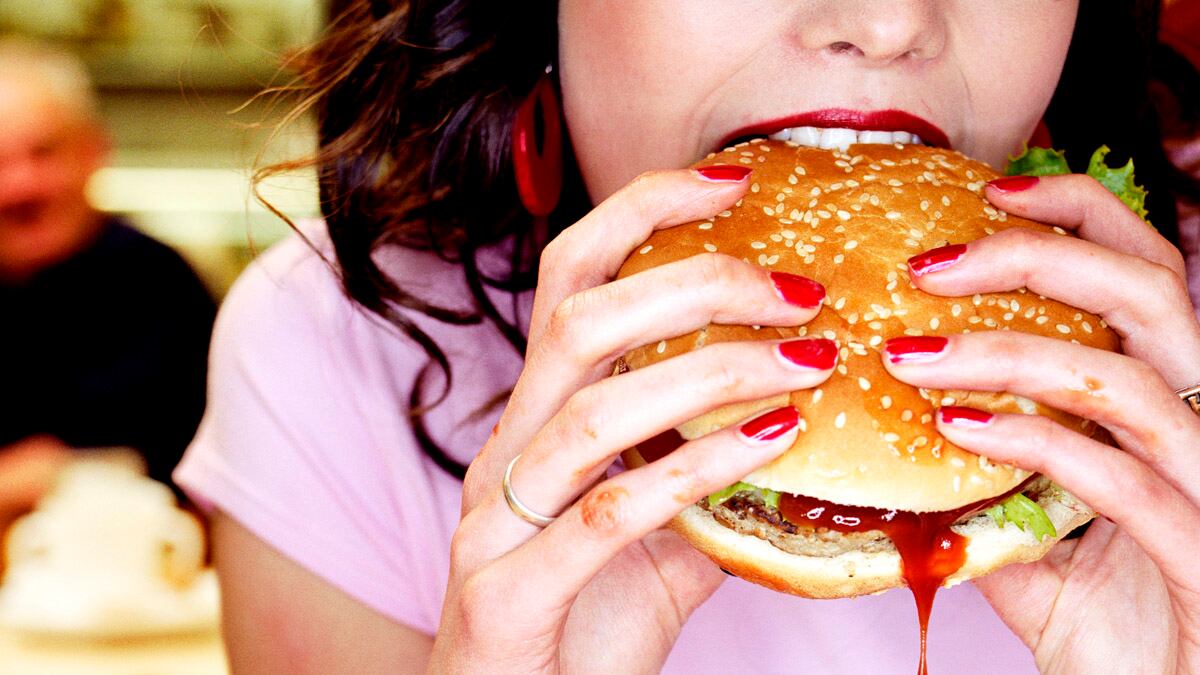Couch-potato Americans from coast to coast received what appeared to be a bit of good news this week with the release of a long-awaited NIH-funded study that examined the effect of calorie restriction on lifespan. After 25 years of observations, we learned that rhesus monkeys who lived the too-thin life by being fed only a lower-calorie diet lived no longer than their rhesus mates who ate a little more, weighed a little more, and, presumably had more fun. The news comes just in time for Labor Day weekend, appearing to ease any guilt over another beer, one more scoop of coleslaw, and a second slice of pie.
The result shocked the researchers at the National Institute on Aging (or NIA, a branch of the NIH) who were expecting a result similar to that from a slightly different study led by investigators in Wisconsin. The latter group made a significant ripple a few years ago when they reported a longer, healthier life for their crop of starving monkeys. The NIA study was something of a blow to sanctimonious sticks-in-the-mud who long have insisted that less equals more when it comes to eating.
The new study appeared to chalk one up for big-screen TVs and lazy Sundays, and negate the Victorian virtues of restraint, continence, and composure, complete with a whiff of moralizing: controlling your appetite pays off in the long run. But is the latest rhesus news really a victory for the slobs and snails? Is blubber the new black? A closer look at the results may suggest it’s not time to open the family-sized bag of Cheetos just yet.
The big difference in the two studies was not in the poor starving monkeys, but rather in their control partners, those lucky stiffs who got to go about their simian business, snorting and swinging as their appetites were mostly met. The NIH control gang, though, differed from their Wisconsin control-group counterparts in that they ate a healthy diet—lots of it maybe, but a balanced, careful, Jalapeno Smokehouse Burger–free diet. Their cheesehead Wisconsin counterparts gobbled up less-healthy foods and were allowed to come back for seconds. And therein may lie the difference.
With the new information, the punchline from the Wisconsin study, which showed a significant benefit to calorie restriction, now seems to be this: if you are going to eat a lousy, sugary American diet, it’s a really good idea not to eat too much of it. If you do eat more of it—as did the rhesus-monkey controls—you’ll die sooner. Period. In contrast, the grain-filled, low-sugar diet of the NIH rhesus crowd—eaten by the starving monkeys and the controls alike—was such a good diet that it didn’t matter if they ate too much or too little. They all lived the same length of time, albeit with more diabetes and other medical conditions among the control animals whose calories weren’t restricted.

I know what you’re thinking: Why can’t we compare the control monkeys of the Badger State to those of the NIH and determine the effect of a lousy American diet (Wisconsin) to that of the diet we should eat (NIH) to determine just how deadly our current approach to food actually is. Tempting for sure, but the rules of clinical trials simply do not allow it. Research is conducted along a very carefully constructed system where variables are laid out in advance, outcomes are agreed upon, and one and all pledge not to tamper with the approved approach. Though counterintuitive at times—why again do we do placebo-controlled trials when people are sick and we want to help them? Sadism?—these two studies, taken together, are a ringing endorsement of the careful, inch-by-inch methods of good science. Scientists did not settle for accepting the Wisconsin results, even though they had seemed to validate decades of rodent-based work connecting too-thin with long life. Rather, they insisted on reworking the study and adjusting some critical variables. Had the study simply confirmed the Wisconsin findings we would have all thought, Geez, millions of bucks to study a bunch of stupid monkeys just to confirm what we already knew—what a waste.
Scientists, though, understand that their job is not to trade in lofty thoughts or appealing theories, but rather to worry and fret and doubt and not sleep at night and chew their nails and talk aloud to themselves and doubt some more then re-run the exact same test again and again till they are really certain that whatever tiny increment of news they have observed is actually true. Because once in a while, what seems repetitive and boring turns out to reveal the unexpected—and a truth far greater than what initially attracted them. The great rhesus wars of 2012 demonstrate just that, and show us that healthy food, not less food, is important for a long life. A 100 percent certifiable truth for sure—at least until the next study.




